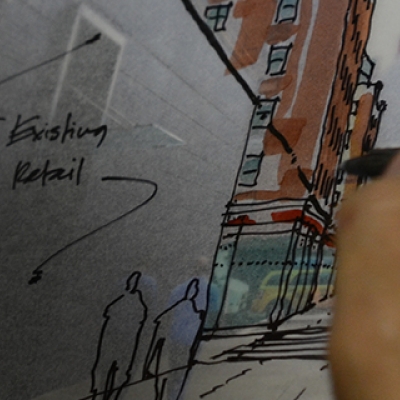
WATCH: Alex Garvin at The Skyscraper Museum
By David Hall / On October 17th, 2016
Founded in 1996, The Skyscraper Museum is a private, not-for-profit, educational corporation devoted to the study of high-rise building, past, present, and future. Located in New York City, the world's first and foremost vertical metropolis, the museum celebrates the city's rich architectural heritage and examines the historical forces and individuals that have shaped its successive skylines.


